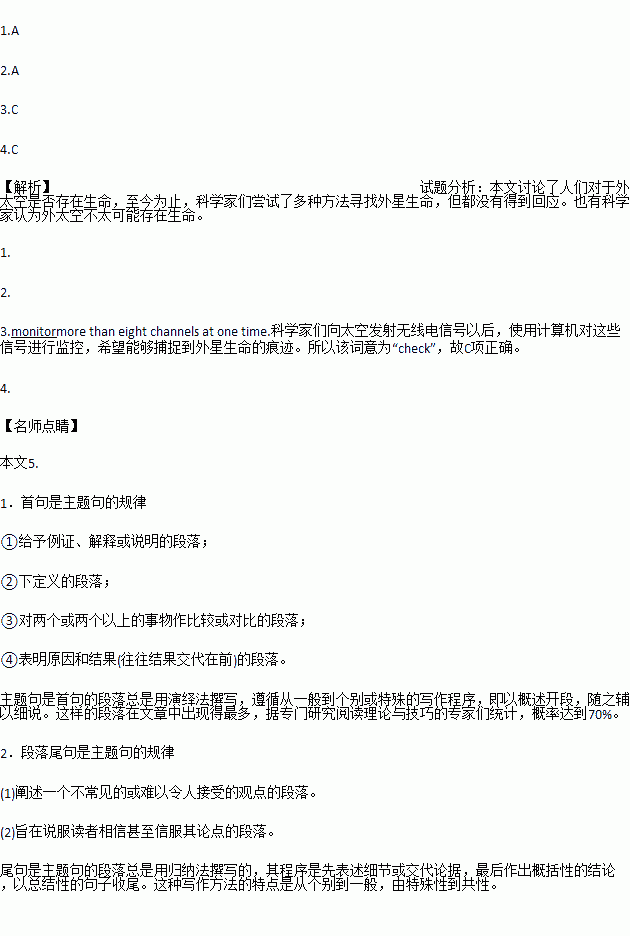题目内容
(重庆一中2016届高三5月模拟)For more than twenty years scientists have been searching for signs of life on other planets. Most of these searches have been done over the radio. The hope is that someone in outer space may be trying to get in touch with us. Scientists also have sent radio and television messages on spaceships traveling through space, on the chance that someone may be receptive to such messages.
Scientists are using powerful radio telescopes to listen to signals from about 1, 000 stars, all within 100 light years of earth. In addition, they will scan the entire sky to “listen” for radio messages from more distant stars. Using a computer, they will be able to monitor more than eight channels at one time. Scientists are looking for any signal they stands out from the background noise.
Of the 200 billion stars in the Milky Way galaxy, scientists find that five percent are like our sun. Perhaps half of them have a planet like earth. Such a planet would be a reasonable distance from the star for temperatures to be right for the evolution of life. Based on the inhabitable(that can be lived in)planets in our galaxy, most scientists agree that chances are likely that one or more of these planets support some life.
However, many scientists wonder whether intelligent life exists on other planets. Some believe that twenty years of searching without any intelligible messages shows that no one is out there. They say that the evolution of intelligence comparable to ours is unlikely.
Other scientists believe that our search hasn’t been long enough to rule out the possibility that intelligent life exists in our galaxy. Although our sun family is only about five billion years old, our galaxy is about 20 billion years old. In that time, some scientists think it is likely that civilization much more advanced than ours have developed. Perhaps these civilizations send us no signals; perhaps we have not recognized the signals they have sent us. If we hope to find intelligent life, these scientists believe that we have to keep looking.
1.According to the passage, how many planets in our galaxy might be inhabitable?
A. 5 billion. B. 10 billion.
C. 15 billion. D. 200 billion
2.The first paragraph in this passage is mainly about ________ .
A. how scientists are looking for signs of life on other planets
B. why scientists are looking for signs of life on other planets
C. where scientists are looking for signs of life on other planets
D. when scientists are looking for signs of life on other planets
3.The underlined word “monitor” in the passage means“ ________ ”.
A. find B. imitate
C. check D. form
4.Which of these statements is true based on the information in the passage?
A. The earth is one of the oldest planets in our galaxy.
B. Most scientists believe that there is intelligent life on other planets.
C. Scientists are trying different ways to find signs of life on other planets.
D. Scientists don’t believe that there might be life on other planets.
 名校课堂系列答案
名校课堂系列答案

 What would be the best title for the passage?
What would be the best title for the passage?